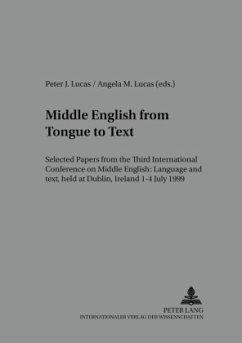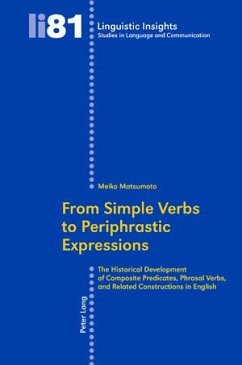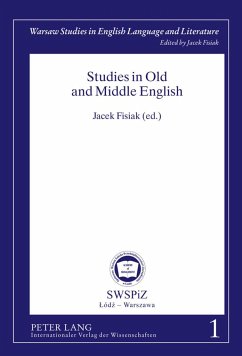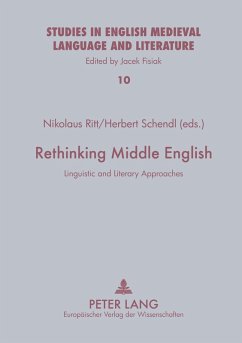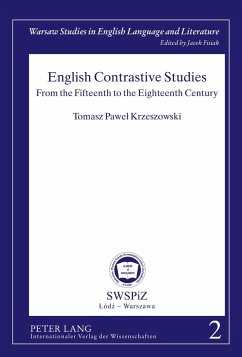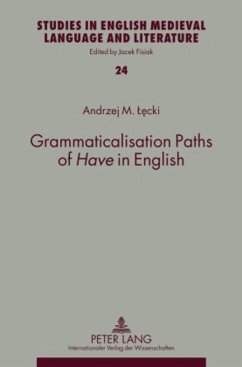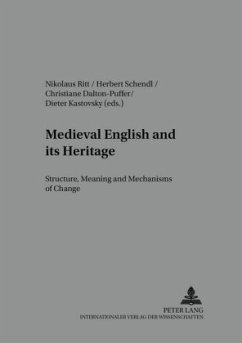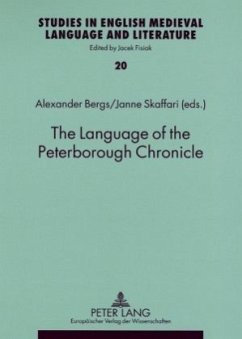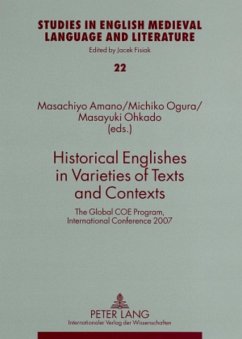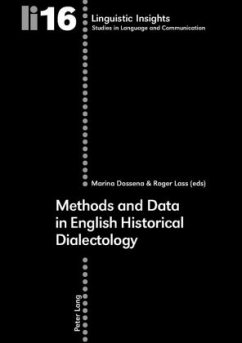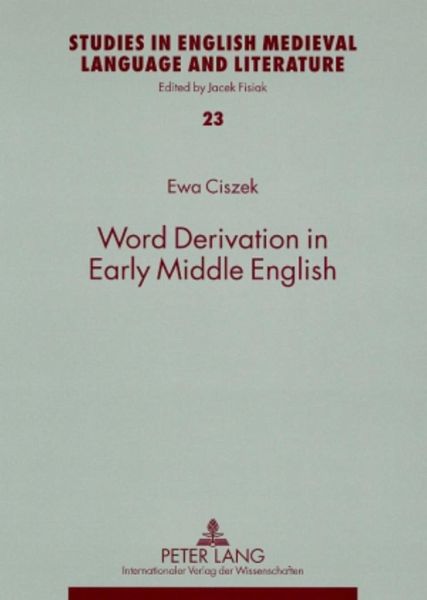
Word Derivation in Early Middle English
Versandkostenfrei!
Versandfertig in 6-10 Tagen
49,25 €
inkl. MwSt.

PAYBACK Punkte
0 °P sammeln!
No comprehensive study of Early Middle English derivation has been published thus far. This book is an attempt to remedy the situation, at least to give a detailed analysis of one class of suffixes, i.e., seven suffixes forming abstract nouns. They are both of native (-d m, -s(c)hipe(e), -h d(e) and -nes(se)) and French origin (-age, -(e)rie and -ment). The analysis includes the semantics of the suffixes both from a diachronic and a synchronic perspective as well as their productivity and dialect distribution. The study is data-oriented, hence the analysis of linguistic facts is dominating. Th...
No comprehensive study of Early Middle English derivation has been published thus far. This book is an attempt to remedy the situation, at least to give a detailed analysis of one class of suffixes, i.e., seven suffixes forming abstract nouns. They are both of native (-d m, -s(c)hipe(e), -h d(e) and -nes(se)) and French origin (-age, -(e)rie and -ment). The analysis includes the semantics of the suffixes both from a diachronic and a synchronic perspective as well as their productivity and dialect distribution. The study is data-oriented, hence the analysis of linguistic facts is dominating. The analysed material comes from the Dictionary of Old English (A-F) based on the Toronto Corpus of Old English Texts, the Toronto Corpus and the Middle English Dictionary on-line. The unique features of the study are the account of the senses of the suffixes in Old and Early Middle English, and the semantic evolution of the native suffixes from Old to Early Middle English as well as the demonstration that some of the French suffixes were productive already in Early Middle English.



